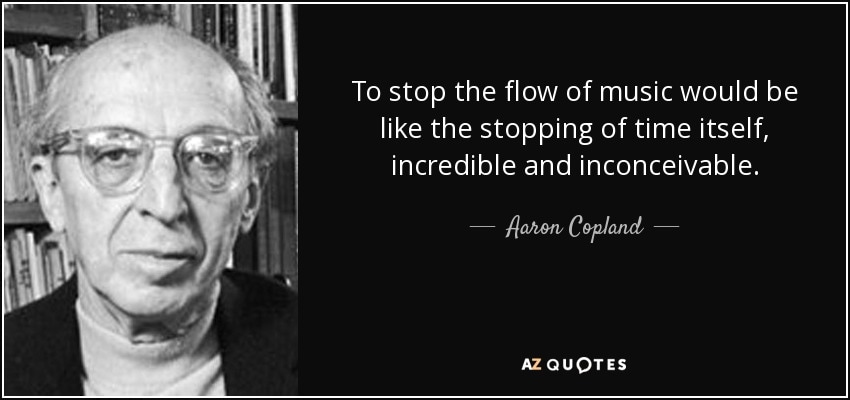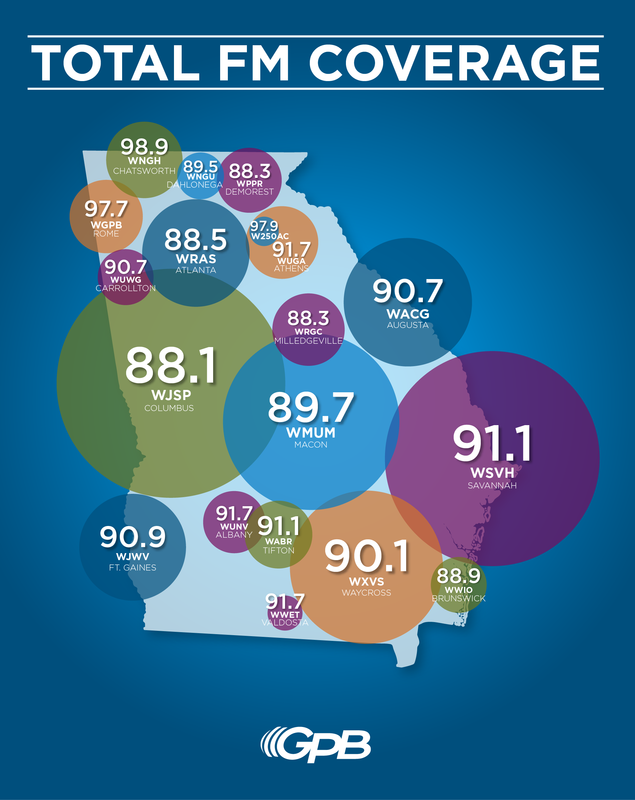|
Aaron Copland died on Dec. 2, 1990.
We were driving north from Florida to New York on one of those all-nighters we used to pull. As we drove through coastal Georgia and South Carolina, we listened to works by the great American composer, plus critiques of his career. Past Brunswick, past Savannah, past Charleston, the radio played ballet scores like "Billy the Kid" and "Rodeo" and "Appalachian Spring" as well as concert pieces like "El Salón Mexico" and "Fanfare for the Common Man" and "Lincoln Portrait." When one station crackled out, just a slight adjustment produced another station, somewhere from 88 to 91 on the FM dial. All that evening, we scarcely missed a note of Copland’s musical references to cowboys and immigrants and martyred heroes. We were connected to the culture of our entire country, not just Big Town but all the places where classical music touches the heart, the brain, the soul. I count 17 NPR stations in Georgia and eight in South Carolina. We know this country well enough to realize that it’s not all political bombast and preachers and country music and rock. As we drove north, in the regional cities and small towns and way out in the counties, people were driving or reading or even falling asleep to the work of the master from Boys High in Brooklyn, who never attended college but instead composed music. This synchronized symphony along Interstate 95 was no accident. It came through a chain of National Public Radio stations, bringing classical music and news and features to all the people and subsidized in part by tax money, via public officials who have recognized, over the years, that pipers (and composers) must be paid. Now National Public Radio is under siege, its subsidies threatened. The new regime seems to regard enlightened talk and classical music to be frivolous, even seditious. In New York, we read that subsidies by wealthy and middle class patrons may keep our two radio stations going. This means we can count on Brian Lehrer switching intellectual gears every weekday morning on WNYC-FM; we can expect Terrance McKnight to keep on playing his eclectic swath of classical music on WQXR-FM. We’ll be all right. But in so many other places, the high end of talk and music is threatened. There are worse things, more dangerous things, worth hectoring your local member of Congress. But In the midst of all the other causes, people need to stand up for National Public Radio, all over this land.
Joshua Rubin
4/18/2017 04:42:27 pm
This saddens me deeply. I more or less lived at my college radio station for four years (not an NPR station), and I interned for a month at KANZ-FM near Garden City, Kansas. That station is now the High Plains Public Radio network, and covers large swaths of western Kansas, Nebraska, the Oklahoma panhandle, and bits of Texas and eastern Colorado. It provides a tremendous cultural and informational resource to those areas, and stations like these will be the hardest hit by cuts.
George Vecsey
4/18/2017 07:37:26 pm
Josh: absolutely. Culture is suspect; reporting is downright dangerous. i think of Obama's glee at being around scientists and artists. How far we have fallen. G
Brian Savin
4/19/2017 07:19:10 am
Copeland and NPR. Fascinating......
George Vecsey
4/19/2017 09:47:41 am
Brian, hey, you added to my education about TR. Thanks again. 4/21/2017 11:36:28 am
I was fortunate to have lived and worked in the same zip code as Symphony Space, a true cultural gem. My business gave significant support during their very difficult start up years.
Brian Savin
4/21/2017 07:31:24 pm
Alan, I don't know Symphony Space, but I did know the Thalia very well, which was either close, or the same location. I lived on W 94th. and CPW was just Columbia Grammar School away. Where was your shop? I remember a kosher butcher at Broadway and 100th Street. My Father's mother always bought kosher poultry because she said that were the only thing even close to her European memories. When I moved back to NY I wanted to throw a party for my family. I prepared a turkey from that kosher butcher shop that my family declared was the best they ever had. (I won't pay YOU for the therapy you give me, either, but thanks so much for jogging wonderful memories!)
Ed Martin
4/22/2017 01:36:20 pm
What a pleasure to read an ode to Aaron Copeland and NPR. The Barbarians are not at the gate, they are in the White House, literally! From Venice, Florida to Magog, Quebec, our annual migration, we listen to NPR almost every inch of the way. If anyone is as old as dirt, in the mid 1950s NBC had a weekend program, Monitor, a fore-runner of "magazine" programming-NPR. First heard Bob and Ray on it while driving from NY to Tuscaloosa, (episodically, that is.) "Fanfare for..."
George Vecsey
4/23/2017 09:11:12 pm
Ed, I remember Monitor. I've taken some epic drives with 50,000 clear channel stations on AM at night -- Marshalltown, Iowa. WSM in Nashville. New Orleans at dawn after Mardi Gras, while driving across Tennessee to Kentucky. Easier to finagle the dial on old radios -- harder to do with digital (all or nothing). Funny dead spot for NPR east of Harrisburg PA to Central NJ. on route 78/ But a Quebec station comes in fine. Go figure. GV Comments are closed.
|
Categories
All
|











